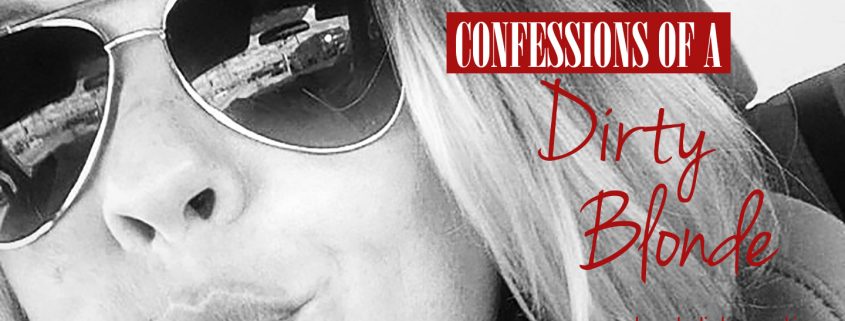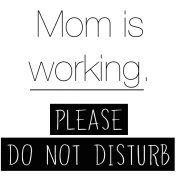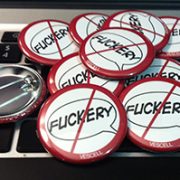3 writing tips from a crazy boss :: Confessions of A Dirty Blonde
I once had a crazy boss who taught me about editing.
He went on to become a millionaire by designing pizza boxes. I am not kidding.
The man did this to fund his writing habit. And just like all twenty-somethings with far too much money, he blew through it and filed bankruptcy later. Then he rebuilt his career with another looney invention.
I learned several things about passion and perseverance from him. Lucky for me, he also taught me these three easy-to-follow editing tips.
No editing during your first draft
Let it go and flow or whatever else Elsa and the Beastie Boys told you. That’s right, if you’re still writing your first draft, you shouldn’t edit. Period.
Editing while creating makes you ineffective at both. Since originality (writing) and logic (editing) come from opposite sides of your brain, trying to use both at once is only causing your left and right brain to fight each other. It makes both sides weaker and your job harder. Instead of creating another epic man-versus-self battle, force yourself to leave the editing to the second round.
Speak your words back to yourself
Reading sections of your writing out loud will help you locate workable sentences.
Yes, it seems awkward and silly, but it works. A general rule of thumb: if you can’t get through a sentence without stumbling or pausing to figure out how something should be said, your reader isn’t going to be able to either.
At my first ghostwriting gig, my editor – the owner of the company – made us read to him what he didn’t understand. More often than not, that ended with me stumbling in the places he also stumbled, indicating I needed to clarify a certain section or add a comma somewhere else.
At first I thought he was a whack job. Then he made me do this exact practice, reading aloud everything he made me revise. It sucked at first. I was embarrassed.
Once I got over it and realized I could do this on my own, before old-man-boss was able to get to my work, I did it before submitting assignments.
And holy hell, it worked.
Cut it out
Longer sentences do not mean better ones.
You can play with sentence length. And yes, some longer sentences are absolutely fine. But they become a problem when you’re only using them to prove your worth. What’s more important? Your ability to put together a perfect, complex and super lengthy sentence or your audiences’ desire to keep reading? Don’t kill engagement to stroke your ego.
The crazy boss also made us revise every sentence longer than fifteen words.
After reading them aloud, I learned it was hard to follow content when strung together by conjunctions and commas. The sentences were structurally correct. But I couldn’t remember the beginning by the time I reached the end. Since I wanted to write memorable material, I sucked up my pride and followed his rule.
And holy hell, it worked again.
Bottom line? My old boss was a crazy genius.
Even though I still think he was straightjacket material, I became a better writer because of him.
***
Got writing questions for Capo? Email capo@rebeccatdickson.com. Confessions of a Dirty Blonde goes out every Thursday.








Awesome post as usual!
On editing: I refuse to do this while writing. It makes me feel out of place and disconnected from the story.
On reading aloud: Yes! Haha. When I first started doing this a couple years back it was kind of strange. Now I can’t get enough, it’s so necessary. Nothing puts the cringe song on repeat like reading aloud lols.
In summary, your previous boss was definitely a badass on how to get this stuff done. Thanks for sharing :)!
Great advice, especially about reading out loud.
It is so difficult to stop myself from editing during the first draft. I often get into a real rhythm on day one of writing, but then when it comes to day two (which actually may be day four or five of the week – being a mom and having to work a “real” job doesn’t help with the daily habit keeping) I re-read what I wrote the day before in order to get back into that same space in my head. When I do that I always find errors, problems, and things that would “work better if I change this one word or sentence.” I pretty much can’t reread my work without editing it (I did it just now in making this post even… reread = edit!)
Got any advice?
It takes practice – heaps of it. Try to remember that the more you edit while writing, the less you will be writing. It will never be perfect. Breathe and move on.